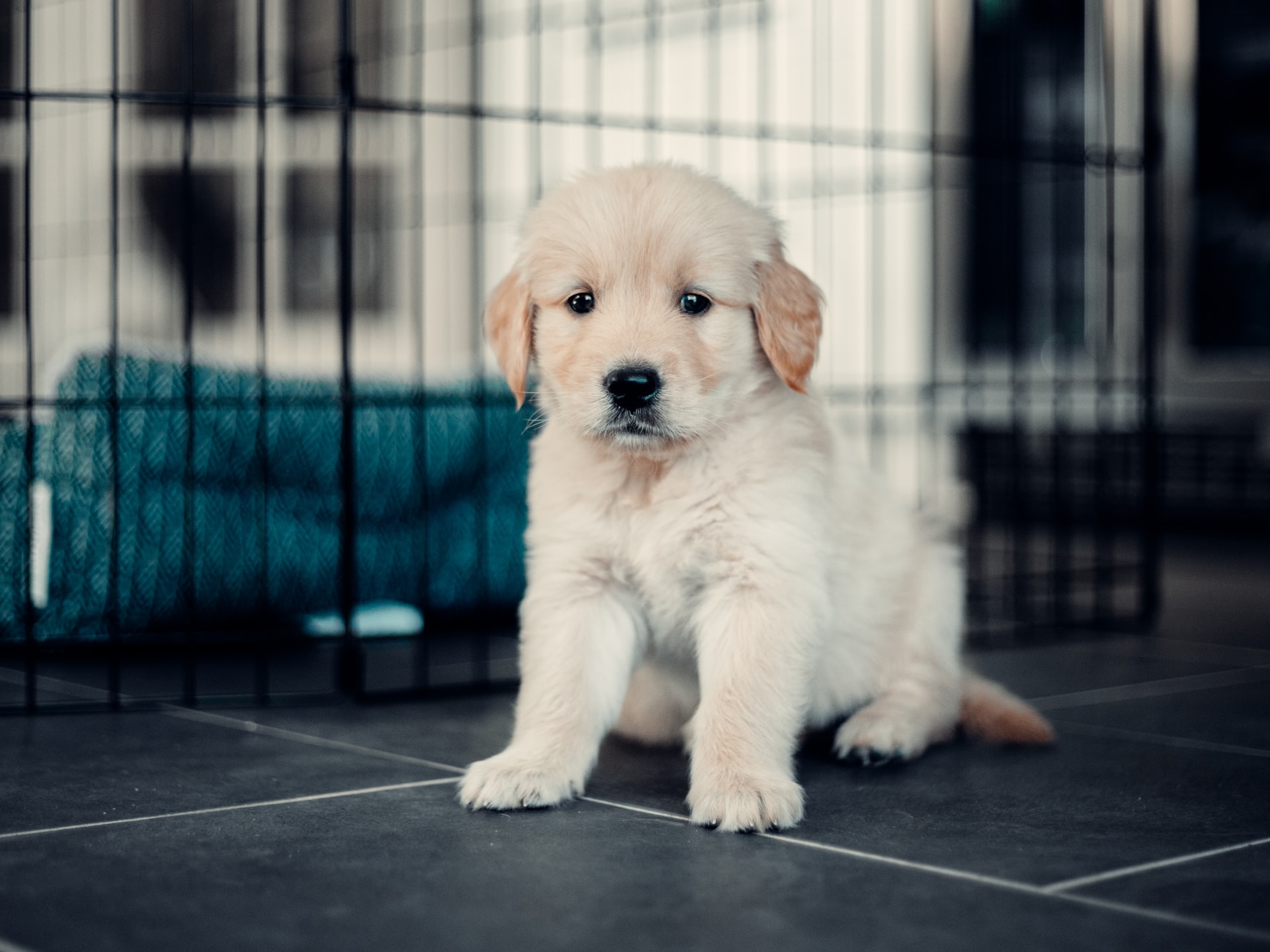It’s a good thing they’re cute. Living with a puppy means a lot of sleepless nights as well as countless hours teaching her everything — from what her name is to how to walk on a leash to what constitutes an appropriate chew toy. And then, of course, there’s the issue of potty training.
No matter how cute they are, nobody likes to step in puddles or piles around the house. Fortunately, you can begin potty-training puppies as early as 12 weeks of age. And starting them earlier rather than later is always recommended. Wondering how to get started? Potty-training a puppy is easy if you follow this guide.

How to potty train a puppy
Create a process
Like most of us, puppies learn from repetitive action. It takes awhile for your little furball to understand what you’re asking her to do, so create a process and repeat it consistently.
For example, ask a question with the same words and inflection, such as “do you have to go potty?” Then, follow up with the same set of actions. Those could be calling her to the door, putting the leash on her, walking her to a designated area, and then giving her a command — such as “go potty.”
Whatever you decide to do, make sure everyone in the family is aware of the process and willing to repeat it consistently. The more often the process is repeated, the less confused your puppy will be about what is expected of her.
Follow a schedule
Puppies have little bladders and small tummies. They need to eat several times a day, which means they have to potty several times a day, too. As much as possible, establish a schedule for eating, playing, and potty training that all members of the household can abide by.
For example:
- Take them outside at the same time first thing in the morning and before bedtime.
- Feed them twice a day at the same time and take them outside to potty shortly afterward.
- Between feedings, take them outside frequently, either once an hour or after each playtime and napping session.
Tip: You might find that using a crate (or small box, depending on the size of your puppy) is an effective way to restrict her movement inside the house. Dogs typically don’t like to potty where they sleep, especially if the crate is large enough only for her to stand up, turn around, and lie down in comfortably, so crate training can help reduce the number of accidents she has in the house.

Use positive reinforcement
Each time your puppy complies with your request, reward her with a small treat and plenty of praise and attention. In a short time, she’ll develop a positive association with relieving herself outside. Yelling, punishing, or using force will only make her fear you, which can cause a multitude of behavioral problems as she grows older.
When she has an accident — and she will — clean it up thoroughly without making a fuss and take her outside immediately. Going forward, resolve to supervise her more carefully as you continue positively reinforcing her good behavior. The goal is to give your puppy every opportunity to be successful and positively reinforce the desired outcome so that she’s more likely to repeat it.
Practice patience
Above all, be patient with your puppy. She is just learning. Most puppies take several months to become completely housebroken, but every dog is different. Remember, most dogs don’t become adults until they are at least 2 years of age.
Be mindful of your attitude during the housebreaking process, too. Research shows our dogs can not only read our facial expressions but sense our emotions as well. A positive, upbeat demeanor will go a long way toward helping your puppy feel good about potty training as well as her relationship with you.
Besides, when you think about all the wonderful things having a dog brings to your life, spending the first few months training her how to be an obedient family member doesn’t seem like much to ask. With consistency, love, and lots of patience, you’ll not only potty-train your puppy the right way, but you’ll also create a receptive foundation for future obedience training.
Editors' Recommendations
- Off-leash dog training is easy if you follow these 5 tips
- Best guard dogs: These 7 breeds will protect you with their life
- Why do dogs dig into their bed? An annoying behavior, explained
- 3 effective tips to make puppy sleep training less of a nightmare
- Why do dogs cry? The 5 most common reasons



